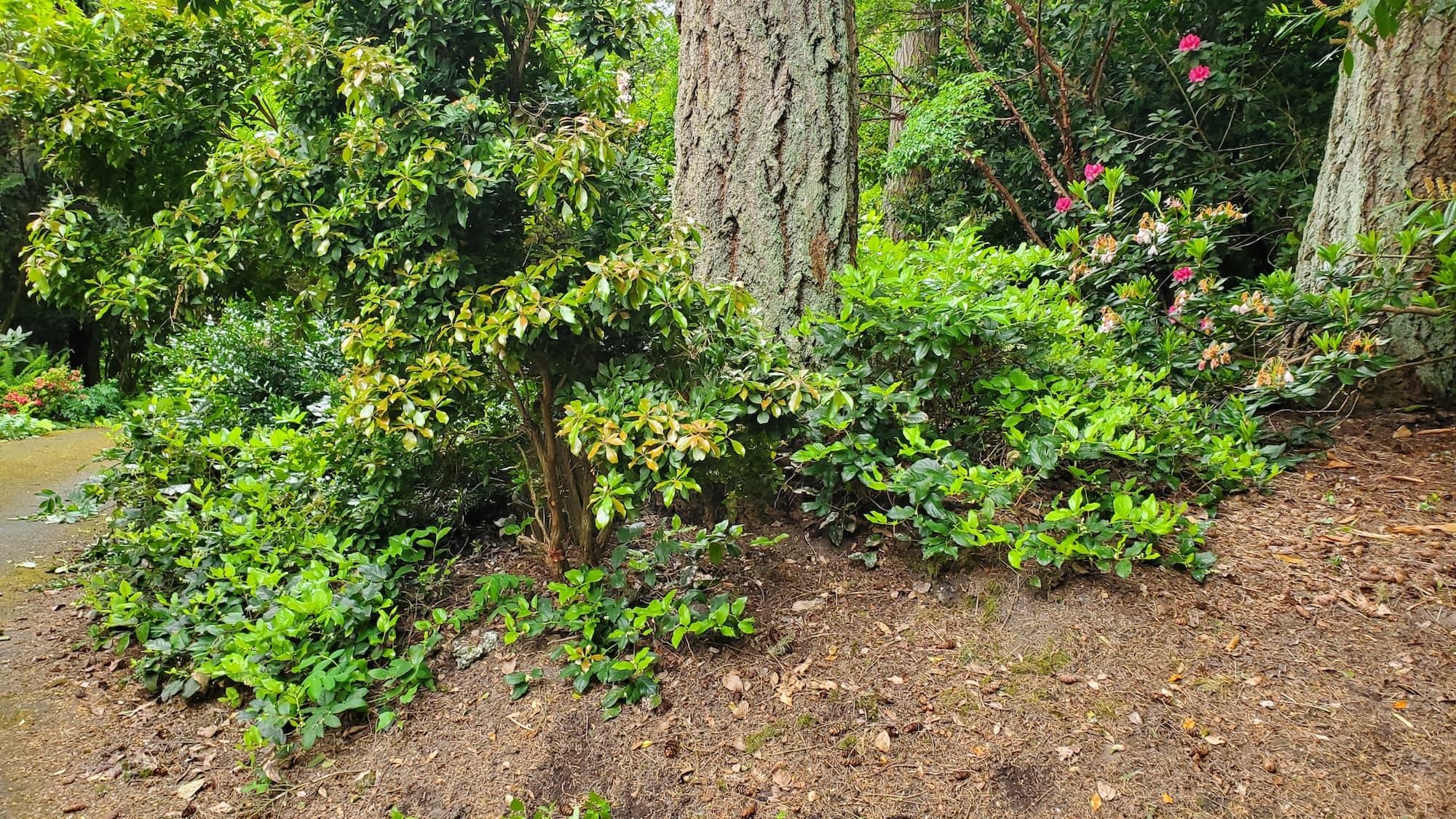West Seattle Organic Fertilizer Program
Homeowner’s Issue
West Seattle yards have a specific set of headaches: heavy winter rain, shade from mature maples and firs, compacted glacial-till pockets, and frequent moss and ivy in low-light corners. Properties near Alki and Lincoln Park see extra wind and occasional salt spray, while the Admiral and Fauntleroy slopes combine thin soils with fast runoff. That mix gives you lawns that look thin in summer, beds that dry and then puddle, and persistent weeds where mulch thins out.
HOAs and neighbors expect tidy edges and year-round curb appeal, but many standard chemical programs damage soil life and worsen moss and compaction over time. Our approach recognizes Seattle’s seasonal rhythm: big growth windows in spring and fall, dormancy in winter, and drier summer spells where watering must be judicious. You’ll need practices that build soil organic matter, improve drainage on slopes, and tolerate shade without relying on herbicides. We focus on pet-safe, organic materials and mechanical methods that suit West Seattle microclimates—so your yard improves steadily rather than bouncing back and forth with every spray. The result: safer play areas, fewer visits to fix the same problems, and a landscape that handles local rainfall patterns and HOA expectations with minimal fuss.
Our Quality Service
We perform a site-specific program: initial visit, soil test, customized organic feed schedule, and seasonal follow-ups. Typical timeline: initial assessment and soil sampling, results in 7–14 days, then first application and any recommended aeration or top-dressing within the next 2–4 weeks.
Tools and methods: soil probe sampling, compost/top-dress, core aeration, low‑impact dethatching, hand weeding, targeted overseeding with shade-appropriate mixes, and mulch installation. We do not use herbicides; all weed control is mechanical or organic. We also advise on simple drainage fixes for slopes and compacted spots.
Benefits: safer spaces for kids and pets, improved curb appeal, lower long‑term maintenance, and a landscape that resists moss and compaction rather than masking symptoms.
What’s Included
- Onsite consultation and photographed condition report.
- Soil testing (pH and nutrient levels) and written recommendations.
- Tailored organic fertilizer applications (schedule based on results).
- Core aeration and overseeding when needed.
- Mulch refresh and bed edging.
- Manual weed control and ivy removal (repeat visits available).
- Seasonal checks and one follow-up visit per service cycle.
Options / upgrades
- Mulch + landscape fabric (spot applications for high-traffic beds).
- Organic compost top-dress (localized soil rebuilding).
- Green-bin composting drop-off or haul-away of debris (you choose).
- Additional overseeding with shade- or salt-tolerant mixes.
- Drainage tweaks: swales, gravel channels, or permeable path refresh.
Before & After / Expectations
Expect short-term disturbance: some noise from aeration equipment and a day or two of visible soil/compost in beds. Aeration and top-dress work best on dry-to-moist soil; we schedule around West Seattle rain forecasts when possible. Color and density gains typically appear 4–8 weeks after the first application; drainage and compaction improvements evolve over several months.
Access & debris handling: we need clear access for small trucks and wheelbarrows. Green‑bin composting is preferred for organic waste; haul-away is available if you prefer. Ivy and heavy moss require repeat removals—plan on 2–4 visits the first year for problem areas. Watering windows: early-morning irrigation after overseeding or aeration helps establishment; avoid late-evening watering that encourages moss.
Care tips for West Seattle
- Rake moss in early spring and increase sunlight where possible (prune low branches).
- Use compost top-dress annually to build soil life.
- Water shallowly and infrequently in drier months, following any current city guidance.
- Reapply mulch in late fall to retain moisture and suppress spring weeds.
FAQs
Q: Do you use herbicides?
A: No. We use only organic fertilizers and mechanical/organic weed control—no herbicides.
Q: How soon will I see results?
A: Soil health improves steadily; visual turf and plant improvements often show in 4–8 weeks, with stronger results over a season.
Q: Can you work on steep Fauntleroy/Admiral slopes?
A: Yes. We use erosion‑sensitive methods and recommend terracing, mulch anchoring, or planting revisions when needed.
Q: Do you handle HOA rules and curb-appeal standards?
A: Yes. We tailor schedules and appearance work to common West Seattle and neighborhood expectations.
Q: What about disposal — green bin or haul-away?
A: Both. We’ll sort organics for your green bin where practical or haul debris to an appropriate facility per your preference.
Call to Action
West Seattle homeowners: if you want an organic, pet‑safe program that actually fixes soil and drainage problems, book a free estimate. We schedule quickly, work clean, and focus on lasting results for yards from Alki to Admiral.
Email: neatandtidyseattle@gmail.com
Phone: 206-538-9344
Mon–Sun: 9am–6pm
Licensed • Bonded • Insured
Preserved media and references: cover image and canonical link remain as supplied.










